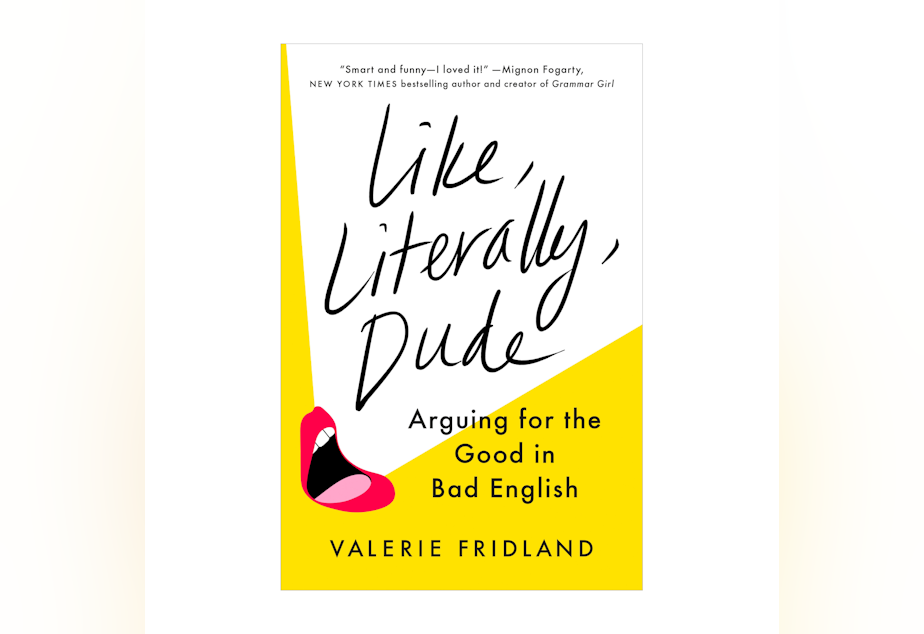A linguist hears your complaints about colloquial English: Words In Review

You have issues. Language issues. With exaggerated words, filler words like “like,” vocal fry, literally-not-literally, and more. You hear them and I hear them.
I played your complaints to a professional linguist, Valerie Fridland, and author of the new book, "Like, Literally, Dude." Fridland argues that our language survives and thrives, not just despite what some of us think of as poor English, but because of it. I loved her thoughtful, researched book and I won’t tell it all here. But a few highlights:
"Literally" also means "figuratively" now — check the dictionary — and the same thing has happened to many other English words over the centuries. “Very” and “hardly” didn't used to mean what they mean now.
“How many of us say that bugs us?” Fridland asks. “None of us, because we don't remember it. No one seems to get confused by them, so I don't think we've seen the decline of civilization quite yet with ‘literally.’”
We throw intensifiers around loosely. We’re absolutely, super-excited about mundane things. Amazing? Ecstatic? Exactly! Awesome!!! Will these words lose their meaning and power?
Sponsored
Fridland says yes.
"We want to communicate an intensity of emotion. Words that have been used too often start to lose that intensity. And that's why these intensifiers are recycled more than almost any other words in English.
We use new ones and then go back to old ones that we used hundreds of years ago, because now we're finding them handy — they actually have weight again. Language always comes up to provide a new way of talking about things using a different kind of hyperbolic expression.”
Young people are especially performative and hyperbolic with words, Fridland says, because our current culture embraces intensity of emotion.
“It's the technology we give them. The idea is we should be visible at all times and track what we're doing constantly. We're asking people to perform and make their lives look exciting over forums that are language-based.
Personally, I don't find them problematic because people know how to shift in other contexts to more everyday speech.
When I'm at home with my kids, they're not telling me, "This was super awesome! It’s hella amazing!"
That's how they talk to their friends — those are the people they perform for. Mom's not that cool; I don't merit that kind of performance. We are practiced in going between different personas.”
To hear Fridland’s take on vocal fry, well, you’ll have to give this interview a creaky, croaky listen (by clicking the "play" button at the top of this story). I’m super-excited for you to hear it *cry-laugh emoji*!!!




